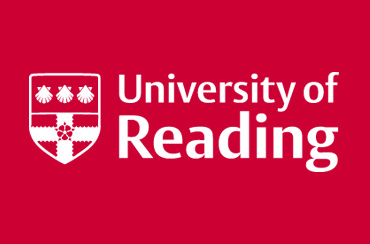Major funding boost for emerging Reading research
12 October 2018

The next generation of research talent at the University of Reading has been backed with five more years of funding from the UK’s leading supporter of environmental science.
The Natural Environment Research Council (NERC) is investing more than £100m in PhD training in the second round of its Doctoral Training Partnerships (DTPs) programme. This will allow SCENARIO, the DTP programme led by the University of Reading, alongside six other partners – including the Institute of Zoology in London for the first time – to continue supporting 12 postgraduate research projects every year.
SCENARIO will back scientific research seeking to tackle some of the most significant issues facing the world and allows PhD researchers to gain work placements in the UK or the US. The programme is also set to expand into a new area of research into the use of artificial intelligence in atmospheric science.
"We can now offer five more years of support for research into cutting edge science, including pioneering work utilising artificial intelligence and the brand new area of wildlife conservation" - Professor John Methven, University of Reading
Professor John Methven, SCENARIO lead at the University of Reading, said: “This welcome funding comes as our first students successfully complete the SCENARIO DTP programme, all of which have walked into jobs in the environment sector.
“Together with our partner organisations, we can now offer five more years of support for research into cutting edge science, including pioneering work utilising artificial intelligence and the brand new area of wildlife conservation.”
Phase 1 SCENARIO students were co-supervised by experts from 30 partner organisations including businesses, public sector and charities. Phase 2 will see another 14 join the programme.
DTP training centres train the scientists of tomorrow by providing the scientific, professional and technical skills that increase the UK’s scientific capability to solve environmental problems. They bring together universities, research organisations and partners, including charities, NGOs, government bodies and industry leaders.
The 2018 DTP2 call was an open and competitive process that identified 17 DTPs to host PhD studentships funded by NERC. The PhD studentships will be available over the course of five annual admissions, starting in the 2019/20 academic year.
SCENARIO success stories
SCENARIO funding enabled Caroline Dunning at the University of Reading to complete her PhD exploring climate in Africa, in particular changes to wet seasons under future climate change.
She said: “The timing of which is of high societal importance to many African stakeholders, and assessing changes to wet seasons under future climate change. Furthermore, through funding and programmes associated with SCENARIO I was able to attend COP22 in Marrakech, and understand the role of climate research within climate policy, and travel to Africa to present at a conference and engage with African researchers.”
"It was a privilege to receive the NERC funding, which contributed to tuition fees, research field trips and attending conferences" - Christoph Kent, former SCENARIO PhD researcher at University of Reading
Christoph Kent, who was named PhD Researcher of the Year at Reading’s Graduate School Conference, was backed with NERC funding to complete a project exploring urban climate, in particular wind speed estimation in cities.
He said: "It was a privilege to receive the NERC funding, which contributed to tuition fees, research field trips and attending conferences. The industry partnership with Risk Management Solutions provided a valuable insight to the application of my research," said Christoph Kent, now a Modeler at RMS.
Professor Tim Wheeler, Director of Research and Innovation at NERC, said “This investment will provide a bedrock for the environmental science community, fostering the next generation of highly skilled professionals that bring together specialist knowledge from academia, industry and beyond.”
More information on Phase 2 of SCENARIO can be found at http://www.met.reading.ac.uk/nercdtp/home/
SCENARIO comprises seven host partners at which the students will be based: University of Reading, University of Surrey, National Centre for Atmospheric Science, National Centre for Earth Observation, Centre for Ecology and Hydrology, British Geological Survey and the Institute of Zoology (IoZ).
The seven SCENARIO themes are:
- Climate and climate change on global, regional and local scales
- Weather and natural hazards, extreme events and impacts
- Hydrological cycle and processes
- Applied ecology and biodiversity
- Biogeochemical cycles
- Infrastructure: urban meteorology, built environment and renewable energy
- Earth observation, remote sensing and near-Earth space weather
